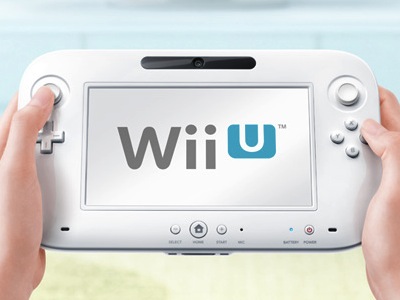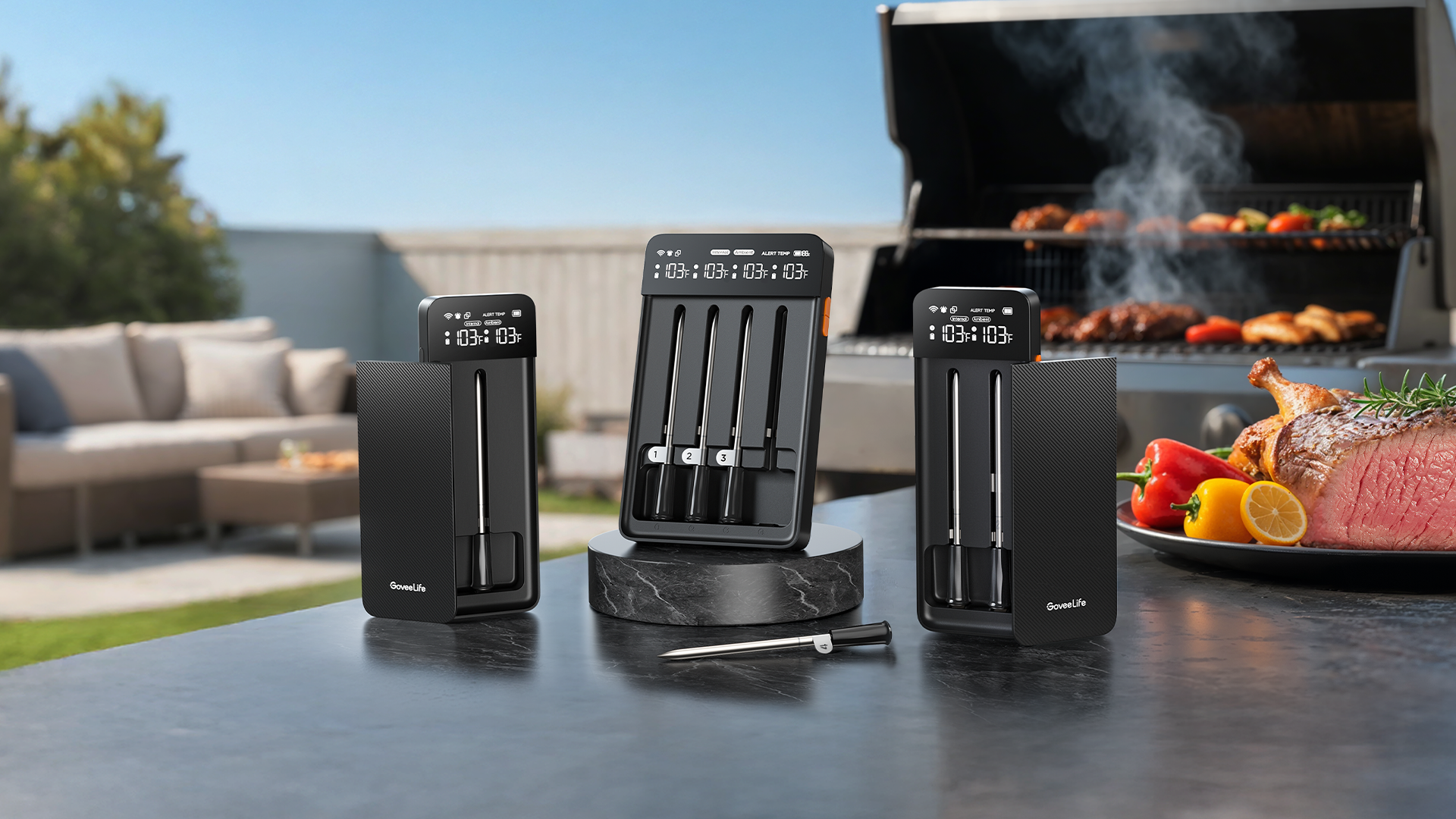Could Nintendo Be Forced to Go iOS, Android?
There's speculation that the lack of innovation in the Wii U may force Nintendo into embracing mobile after all.

The Boy Genius Report has an interesting article about the future of Nintendo. It actually starts as a hands-on impression of the new Wii U console, but moves on to suggest that Nintendo may be forced to port its games to Apple's iOS and Google's Android mobile platforms, following the likes of Sega, Electronic Arts, Square Enix and other popular developers making loads of money in the mobile sector.
The hands-on report of the Wii U isn't flattering whatsoever, saying that the new console "clearly demonstrates how far Nintendo has fallen and how out of touch the company is." Investors seemingly felt the same way when Nintendo revealed the console during E3 2011, saying that the company needed to focus more on mobile rather than another TV-grounded gaming device because that's where customers have gone.
But here we are in December 2012 with another gaming platform that tries to bridge the typical living room gaming hardware set with the mobility of a tablet. "The fact that Nintendo actually decided to ship this joke of a controller called the GamePad with a 6.2-inch touchscreen in the middle says it all," the report reads. "It only lasted for around two hours per charge over the week I’ve used it, and it’s big, clunky and made of glossy Nintendo plastic."
Ouch. The report goes on to state that this new controller has no charm, it feels "thrown together" as if Nintendo is stating that it can address mobility without actually entering the mobile market. Even more, the console's UI is reportedly "a mess" and looks blatantly Japanese, reportedly a bad move in a world full of iOS and Android devices that don't typically reveal a country of origin.
"It lacks any and all sophistication," the report states. "It’s like all of Nintendo’s designers just gave up and are living in a time when Apple’s iOS devices and Google’s Android devices don’t exist, blissfully ignoring the threat that their company is facing from all angles."
Granted this is just one opinion, and sales figures will dictate how well Nintendo will succeed with this next-generation product. But the gaming industry itself has been worried about the overall direction the market will take in the next yew years. Gamers in general have become accustomed to purchasing smaller bits for a cheaper price, able to port their gaming habit on a multi-functional device. Plus the rising cost of AAA development and the declining sales of high-dollar games have led to speculation that another great Video Game Crash will soon take place.
"The Wii U experience is so terrible that it took over an hour to update the software on the console recently, and apparently that wasn’t that bad," the report adds. "People have told me their updates took over 4 hours when performed closer to Christmas. Do you know what that 7-year-old is doing during those 4 hours you’re making him wait? Playing Temple Run or Angry Birds on his iPad mini. Way to go Nintendo."
Get instant access to breaking news, the hottest reviews, great deals and helpful tips.
Nintendo is probably the only major old-school game developer still rejecting the smartphone and tablet market. The company even publicly rejected any thought of a mobile move when stocks began to rise once rumor began to spread that a Pokemon game was coming to iOS. If anything, the old-school console as we know it, despite what gimmick Nintendo can muster up to generate sales, is likely ready to retire.
Unless Nintendo embraces change more so than it has with the Wii U, it will be forced to bring its popular IPs like Mario, Pokemon and Zelda to the mobile platforms. Just look at Sega, Activision, EA and Square Enix: they're not only sitting on mountains of cash, but likely in the pockets and hands of every gamer who owns an iPad, iPhone, Android smartphone and tablet. That's a LOT of missed revenue for Nintendo.
Kevin started taking PCs apart in the 90s when Quake was on the way and his PC lacked the required components. Since then, he’s loved all things PC-related and cool gadgets ranging from the New Nintendo 3DS to Android tablets. He is currently a contributor at Digital Trends, writing about everything from computers to how-to content on Windows and Macs to reviews of the latest laptops from HP, Dell, Lenovo, and more.
-
Filiprino Investors should shut the f**k up and learn some technological related knowledge so their rotten brain stops thinking on idiotic things like that.Reply
Nintendo has hardware control, they own the whole chain of their business and it's retarded to make games for other platforms.
If they should make software for other platforms would be with the sole objective of getting more people using their devices and network. -
bustapr I see alot of points in this guys claims, but I believe hes only trying to look at the bad side of the console. the console has the potential to make new experiences in gaming that I find may be very enjoyable. the new console is also a very big and glaringly obvious opportunity to make an official SNES and NES emulator and sell games for those older consoles through their online store. if nintendo makes official emulators, I know sales will skyrocket(regardless of there being free unofficial emulators for pc and phones). I honestly believe that if nintendo goes the ios/android route, theyll end up ruining their companies identity and uniqueness.Reply -
dormantreign HAHA, move along nothing to read here but some tard who thinks he knows things. Nintendo don't have to do anything, they are fine just the way there are and i hope to god i don't see them sell out like sega, enix ect.....ton of cash LOL. The companys he's talking about are up shi*s creek.Reply -
cbfelterbush People can hem and haw over how Nintendo has botched this and that, but at the end of the day they still sell as many consoles as the other three. If not more. They basically invented, established, and perfected the mobile gaming segment with the likes of the GBA-SP. Though I do believe the resolution on the 3DS-XL could be doubled it still out games your i-pod, that makes calls. OR your bigger i-pod, or your slightly smaller but still big i-pod.Reply
I realize this articles real intent is to suggest that Nintendo should release their software on other mobile platforms. However the Nintendo experience between hardware and software is nearly always great. They could certainly bolster the companies bottom line by releasing a flood of mobile content but how would that effect the long term positioning of the company.
Many refer to Apple as the most successful company of all time, only because they have been valued higher than anything else, however I submit that having a large bank account and droves of ignorant customers surely does not equate to success. Sustainability counts for quite a bit, And with Apple only able to innovate every ten or so years. We will see which of these companies should emulate the other. Apple did learn something from Nintendo, have Foxconn ODM it, then sell it on the cheap to the whole world. Well Apple didn't pick up the cheap yet.
-CB -
TheViper Kevin, I'm really wondering if Tom's Hardware hasn't taken up an agenda against Nintendo. If I pull up a list of the most recent Nintendo based articles, they are only negative. I never see Tom's Hardware post any of the positive articles (and yes, they do exists, you smart asses).Reply
The source article here strikes me as nothing short of useless. It's certainly not news. And anybody with any remote familiarity with the video game industry and the console could debunk the entire article from start to finish in minutes.
But worse is that Tom's Hardware not only gave this inane article a bigger audience than it should ever receive but that you actually agree with it. You've done your media outlet a disservice to itself by aligning yourselves with such idiocy.
For shame Tom's, for shame. -
not going to happen the gamepad is fine the only mistake I feel nintendo made was gimping the hardware, should have had the console launch at 399$ and put that money to more ram and a more powerful cpu so it would be easier to develop for. Nintendo is the only company I could see still having a console in the future. Steambox or a variant or an Ouya with ps4/720 specs or hpcs will kill sony/microsoft console. I don't know if there will be a PS5 but would bet money that there will be no PS6, Nintendo might still be around. Microsoft could be too getting windows on every TV could be a viable future strategy for staying relevant.Reply
-
casualcolors FiliprinoInvestors should shut the f**k up and learn some technological related knowledge so their rotten brain stops thinking on idiotic things like that.Nintendo has hardware control, they own the whole chain of their business and it's retarded to make games for other platforms.If they should make software for other platforms would be with the sole objective of getting more people using their devices and network.Reply
The Wii U marks the first time that Nintendo has had "hardware control" since the N64. Starting less than 1 year after the Gamecube's release, Nintendo's console hardware has been successfully emulated twice during each console's production lifespan. It happened to the Gamecube and then expanded to the original Wii.
While moving to iOS and Android would certainly tarnish the exclusive image of Nintendo, at this point that's really all that it is; an image. It hasn't been reality for a long time, and suspicions are already arising that the Wii U will be the next console that Nintendo has produced that will be successfully emulated during its early production life cycle.
I would hate to see Nintendo move to mobile phones, but there is no way to deny the huge potential for profit if they do head in that direction. The only way to deny that would be a gamer's overprotective sense of nostalgia.
